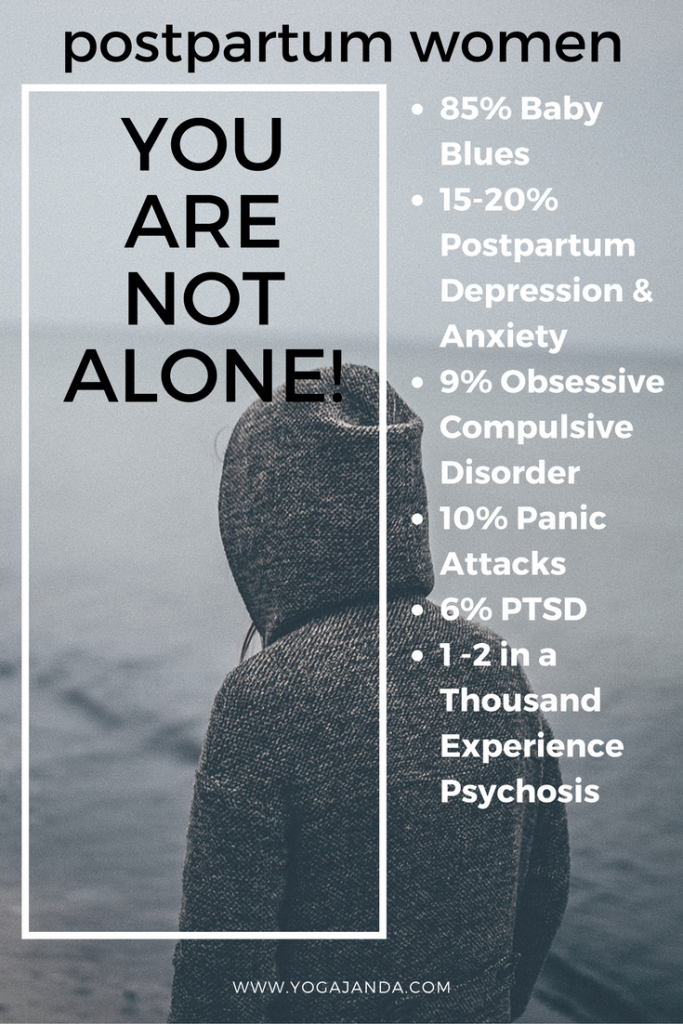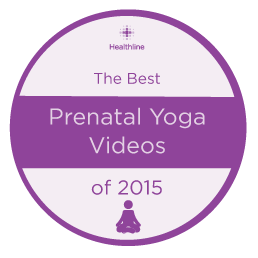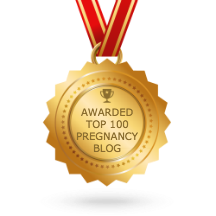Scroll To The Bottom Of the Page For Resources to Find Help, and Recommended Reading, To Find Understanding
You’re In Good Company If You Are Experiencing Any Perinatal Mood Disorders
- Baby Blues – 85% of postpartum women experience the “Baby Blues.”
- Postpartum Depression and Anxiety -15-20% of postpartum women.
- Obsessive-Compulsive Disorder (OCD) – 9% of postpartum women.
- Panic Attacks – 10% of postpartum women.
- 1 – 2 per thousand postpartum women experience psychosis.
- PTSD (Post Traumatic Stress Disorder) 6% of women who experienced a life-threatening or traumatic childbirth.
Though rarely do people talk about it, at least 1 in 5 mothers will experience depression or anxiety after their baby is born. There can be many factors involved. Previous bouts with depression or anxiety can be a factor. Having a traumatic birth experience, hormonal changes in the body which affect neurotransmitters in the brain, and just the drastic life change can all trigger any one or more in the above list of Perinatal Mental Health Issues within the first year of a new baby’s arrival. These are the things mothers with postpartum depression or anxiety say to themselves:
I’m Embarrassed Or Ashamed.
I’m A Terrible Mother!
I’ve Made A Terrible Mistake.
I Don’t Want To Be A Mom.
I’m All Alone.
I’m Terrified I’m Going To Hurt My Baby.
One of the most frustrating things about postpartum depression and anxiety, and even the Baby Blues, is that no one wants to talk about it. They feel they will be judged. Or people will say what a bad mom they are. Well, listen ladies, this is a very common issue and it’s time to put it out there on the table for discussion. This is an illness. It’s a brain illness, a mental illness. Your brain chemistry has gone awry. Imagine if you had a thyroid issue and you didn’t take medication or see a doctor. Or, what if you had diabetes, cancer, epilepsy, migraines and didn’t get treated? It’s the same thing. Chances are your brain needs some help so that you are able to enjoy life again and enjoy your family again.
This is an illness and you didn’t cause it.
The rate of depression during pregnancy is 15-25%, so that means that some women have already been suffering with this even before the baby arrived. Asking for help with your postpartum depression or anxiety proves what a good mom you are. You recognize you need help and you ask for it. For your sake and your family’s, you must ask for help if you are having any of the following symptoms:
- Sadness
- Irritability or easily angered
- Lack of pleasure in things you used to love to do
- Guilt
- Sleep disturbances – too much sleep or lack of sleep
- Excessive worry or fear
- Hopelessness
- Fatigue
- Lack of feeling toward the baby
- Unable to concentrate
- Crying
- Moody
- Persistent thoughts
- Fear of germs, your health, or hurting your baby
- Extreme anxiety
- Restlessness
- Agitation
- Panic attacks – shortness of breath, chest pain, dizziness
- Confusion
- Paranoia
- Seeing or hearing things that others do not.
Where To Get Help – Resources To Help You Cope and Get Better: ·
postpartumhealthalliance.org
motherisk.org
postpartumprogress.com
postpartum.net
drshosh.com
solaceformothers.org
birthtraumaassociation.org.uk
dona.org











